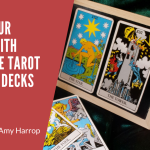 Are you a fan of old Westerns?
Are you a fan of old Westerns?
If you are, you would have seen at least one or two where the plot focused on the Gold Rush of the mid-1800’s that happened in California.
Along with being fairly historical and highly entertaining, something all of these movies have in common is an important character known as ‘the prospector.’
A prospector is a person who searches for mineral deposits, especially by drilling and excavation.
In the case of the old Westerns, the only mineral deposits prospectors were interested in was gold.
The prospector was always the one leading the charge towards “them thar hills.” And, upon reaching said hills, countless and painstaking hours were spent carefully sifting through river stones and sand looking for the tiniest golden flecks promising a bigger find further up the river.
Prospecting in Kindle’s Bookstore
When it comes to self-publishing Kindle Books, there’s a lot you can learn from the prospector.
The most important thing being that the key to success in finding sources of “gold,” is to first analyze and explore a territory thoroughly before making a decision to dig deeper.
There are three important basics to finding profitable niche gems on Kindle.
- Find niches where there is a demand for information.
- Find topics that customers are willing to spend money to get answers for.
- Find books that have beatable competition.
Keep in mind that unlike prospecting during the Gold Rush to find a huge source of profits in one place, prospecting on Kindle is more suited to finding smaller but still profitable “pockets” of riches.
Look at it as a cumulative numbers game.
If you can find a niche topic that nets you $500 a month and discover nine more like that, you will have created a respectable income and valuable properties that can earn you money for years to come.
Think of your niche research as prospecting.
Want to make Kindle research more fun? Keep the image of panning for gold in your mind as you explore ideas for your next book.
How to Find Niche Gems in Kindle Books
If you want to sell Kindle books, the best and only place you really need to focus your prospecting on is in the Kindle bookstore.
By using the platform’s own information and data, you can confidently explore and discover profitable niches and topics, where you can create a book that will sell and bring in a significant income.
Instead of blindly “digging” here and there and coming up empty more often than not, its beneficial to begin your search for a profitable niche by following the trail of breadcrumbs already left behind by successful kindle publishers.
Begin by exploring Kindle’s bestseller lists to see the proven titles and niche topics that are already bringing in sales.
- Look at the top 100 best-selling books in each category.
For each category you explore, only look at the top 100 paid books. Avoid the freebie list because there is no money to be made in niches where people won’t pay for information.
- Gather a list of potential topics.
Browse through categories that interest you and look for topics to explore further and gather a list of between 10 and 20 niche ideas based on keywords that jump out at you from the book lists you explore.
- Select winning niches based on specific criteria.
Once you have a short list of niche topics and ideas, go through your list and explore each idea to see if it has profit potential based on the following criteria.
- Books with decent but not too high of a demand.
High demand equals fierce competition. You want to make sales, but you don’t want to get involved in a bloodbath against competitors with bigger budgets and more resources than you, so aim to sell books in less competitive but still profitable niches.
- Books that sell for a reasonable amount, but aren’t too expensive.
Somewhere between $0.99 and $3.99 is the sweet spot for most Kindle books. Unless you are a well-known author, have a loyal brand following or are selling something that a lot of people are willing to pay a relatively high price for, you’re better off focusing on making smaller profits from the sale of more copies of your books.
- Books that have a track record and authentic sales trend history.
You want to look for books that can prove they have been selling, but that also don’t have artificially inflated numbers based on Kindle’s Best Seller Rank (BSR) algorithm.
If a book has been selling for at least two months and is still high up on the best seller list, that’s a good sign and typically means that there is still sales momentum after its initial launch, which is when Amazon typically gives new books a BSR boost.
- Books with less than 100 reviews.
In a similar way as on the wider Amazon platform, Kindle readers put a lot of stock in user reviews to figure out what they will and won’t buy for themselves.
By focusing your attention on best-selling books that have a lower number of reviews, you have a less steep hill to climb in order to get your book to the top of buyer’s lists as opposed to trying to compete with sellers who have racked up hundreds or thousands of reviews and essentially have the go-to book in any particular niche.
- Books where you can add value.
Speaking of reviews, spend some time reading through the ones you see on existing kindle books that are doing well in any particular niche. Tip: Focus on books with 3- and 4-star reviews.
Look for comments on how readers of the book in question say it could have been improved or made more useful for them.
Make a note of the suggestions and see if it would be possible for you to create a similar book, but make significant improvements.
You could either produce better content, present the existing content in a better and more usable way or simply improve the cover design and the description of the book to attract more attention in Kindle search results.
Stick to What Works
Before you go prospecting for your niche gems, there’s an important caveat.
Resist the urge to create your own niche.
If you’ve ever come up with what you thought was a unique and one-of-a-kind idea for a Kindle book, congrats on being creative, but I must caution against using that idea to actually publish a book.
The key to making prospecting, or niche research work for you on Kindle is to use the information you already have to position yourself to profit from your book writing, publishing and marketing efforts.
The data that Kindle provides about what is and isn’t already selling on the platform should guide your decision-making process.
Niche research is one of the most important skills you will ever learn as a Kindle Book Publisher. Get your niche selection right and you have done most of the work towards creating and selling a successful book.
The next time you want to find a niche topic for Kindle, start with prospecting to uncover several of the most profitable ideas available.
Always spend ample time panning for gold before you dedicate hours of your time or any of your hard-earned money or resources to produce a book. It will practically guarantee a successful book launch when that time comes.




Leave a Reply